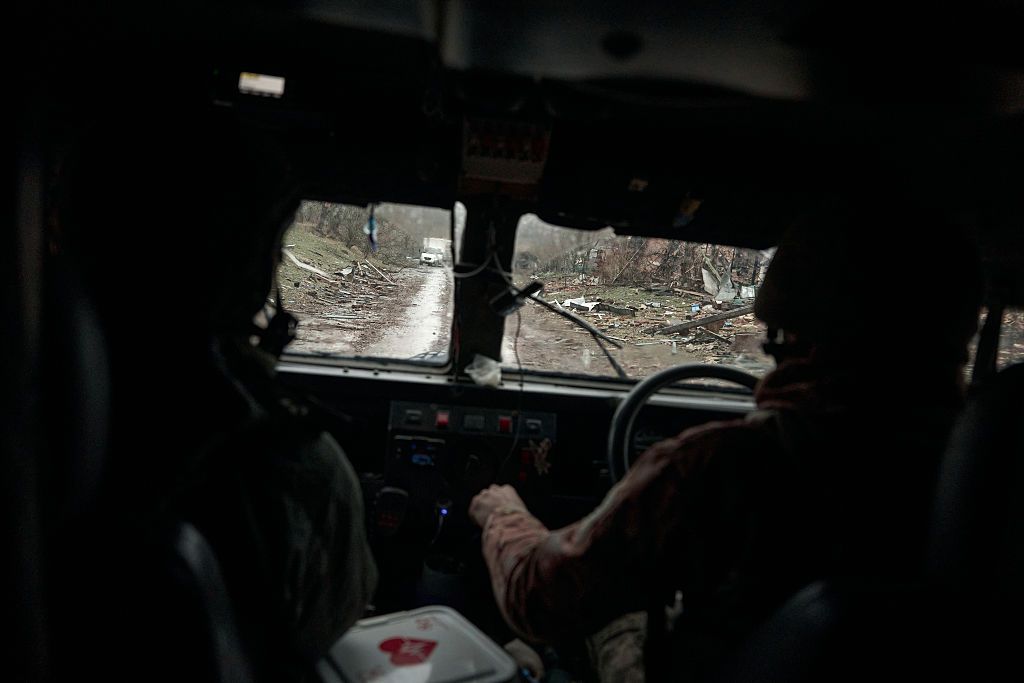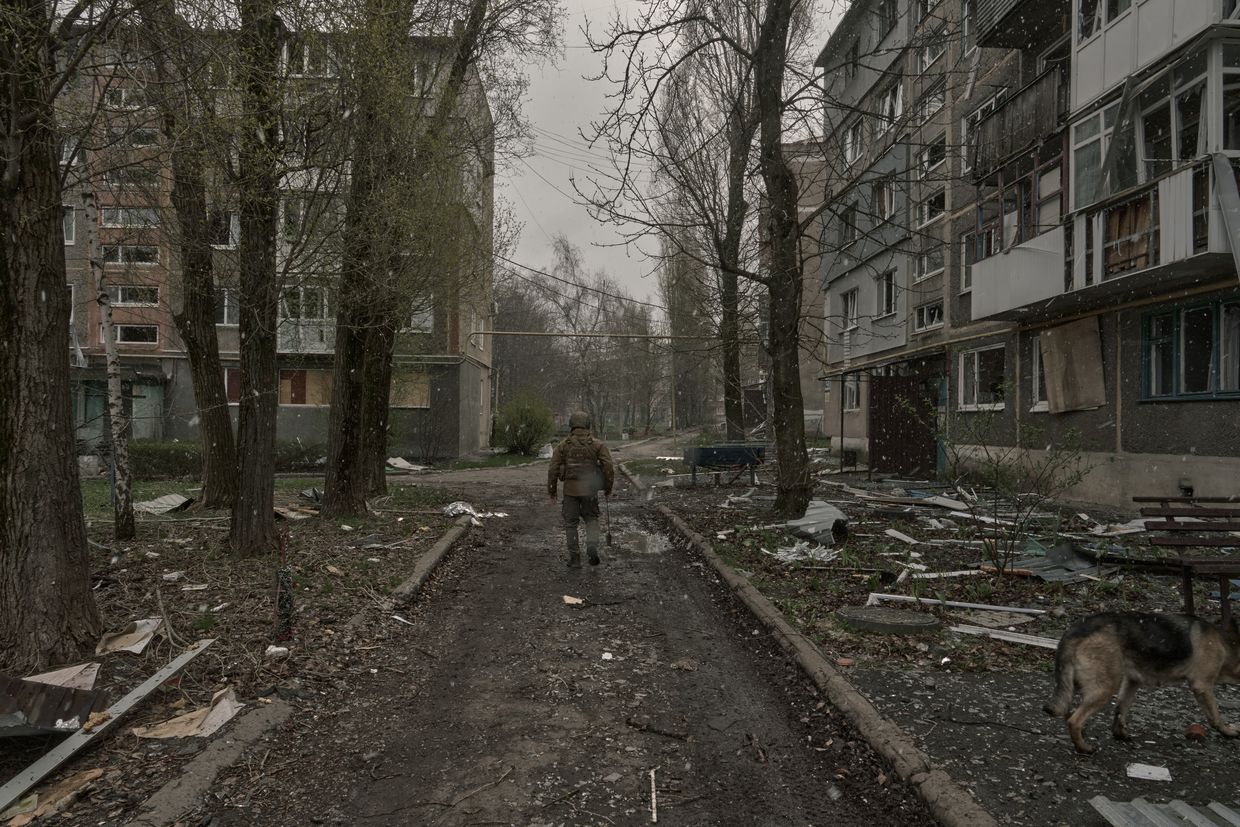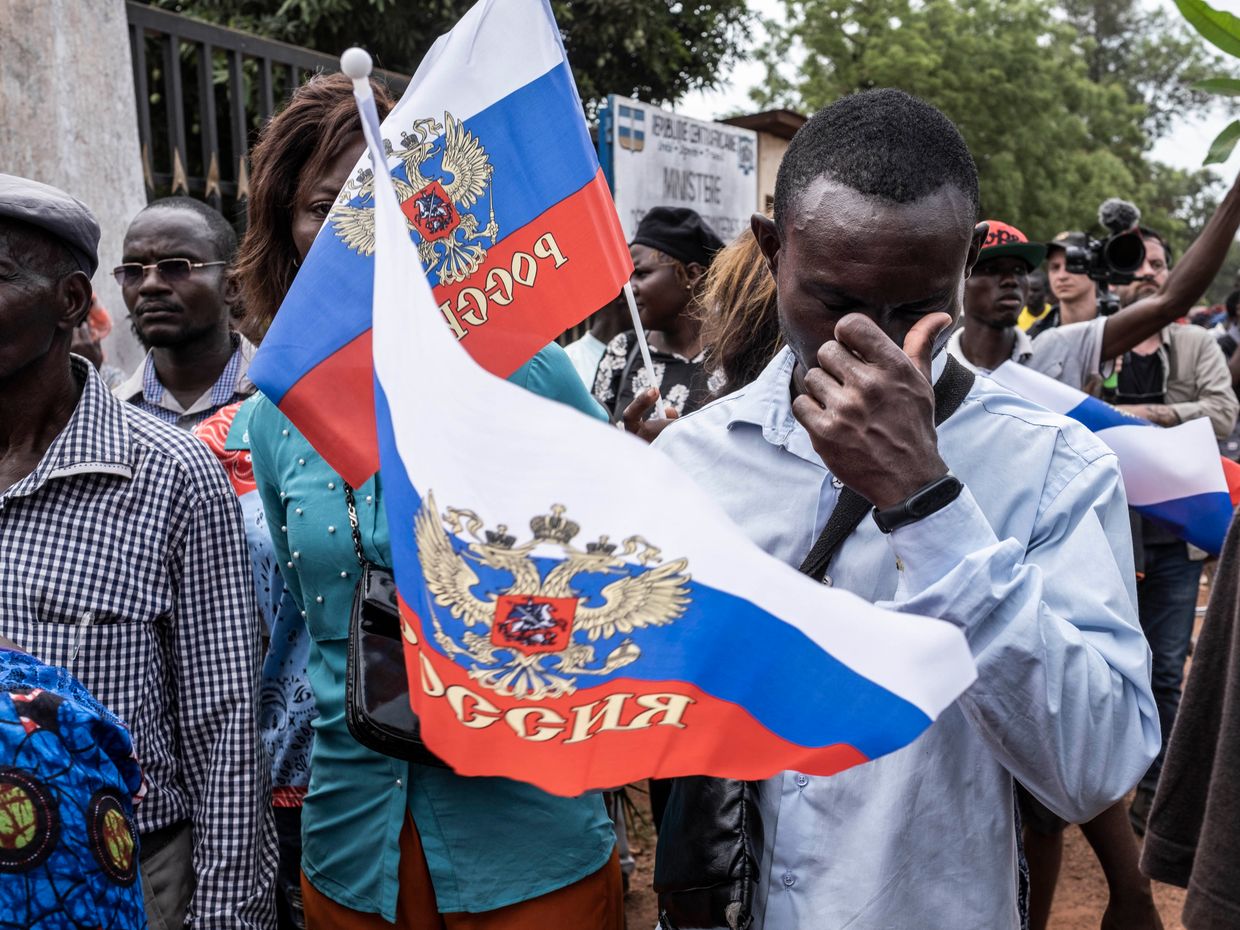Editor's note: This investigation, based on leaks obtained by Delfi Estonia and compiled for a joint investigation with VSquare and Frontstory.pl, Expressen, Meduza and iStories, Paper Trail Media, Der Spiegel and ZDF, Der Standard, and Tamedia publications, has been republished by the Kyiv Independent with VSquare's permission.
“I will not hide that at different times I’ve had different ideas, but now you are right. Now is the time when decisions have to be made,” Russian President Vladimir Putin said in the hall of the Kremlin on Dec. 8 last year. His voice was quiet, even quivering.
Colonel Artyom Zhoga, commander of the so-called Donetsk People’s Republic’s Sparta battalion, had just delivered a spirited speech in which he asked Putin to run again in the upcoming presidential elections. “We are your team. We need you. Russia needs you,” Zhoga pleaded with Putin.
(Editor’s note: Donetsk People’s Republic is the illegitimate name used by Russia for the parts of Ukraine’s Donetsk Oblast occupied by Russia through its proxies since 2014)
And Putin agreed.
Naturally, it was a charade. No one doubted that Putin would run in the elections in less than three weeks and win them overwhelmingly. The Kremlin least of all, because they have done everything in their power to ensure that the March 17 elections will end with Putin’s triumph.
In the leaked Kremlin documents, these activities are literally and unashamedly called an “information war,” even though it is being waged against their own society. The total planned budget for the three main categories – the presidential elections, information war, and the occupied areas in Ukraine – reaches 1.1 billion euros ($1.2 billion). The largest share of it, up to 631 million euros ($684 billion), was allocated for the information war, according to the documents. (Throughout the article, we will refer to the amounts in euros, using the rounded exchange rate of 1 ruble = 0.01 euros.)
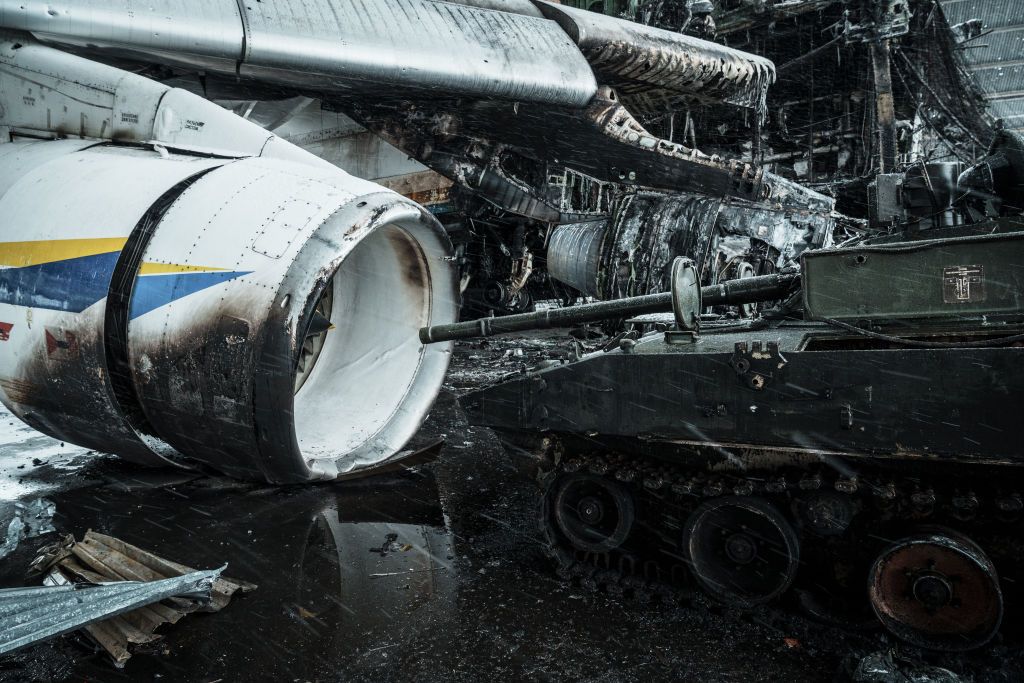
At the same time, the Kremlin pays special attention to what it calls new territories, i.e. occupied areas in Ukraine, where it has sunk billions of rubles to ensure the local population’s loyalty.
We consulted several Russian analysts to verify the authenticity of the leaked documents. In addition, we compared their content with publicly available Russian state budget data and found several projects that overlap (unlike the leaked files, however, the public budget does not disclose the purpose of these sums). We also looked for references to the implementation of the projects that received funding from public sources and, in many cases, found them. All of this together allows us to assess the leaked files as genuine.
“These documents are important for two reasons. First, they confirm exactly how [the Kremlin is trying] to reshape the entire ideology of the Russian state. But secondly, they show how it is carried out on a micro level,” said Russia analyst Mark Galeotti, who reviewed the leaked documents at our request.
He added that these documents also reveal Putin’s fears. “Underneath all this pomp, it’s a regime that thinks it’s in trouble,” Galeotti said.
The leak comes from the so-called domestic political bloc of Russia’s presidential administration, led by 61-year-old Sergei Kiriyenko. When Kiriyenko became the youngest prime minister in Russian history in the spring of 1998, he earned the nickname “Kinder Surprise” for both his young age and unpredictability. Now, more than 25 years later, he is called the “Viceroy of Donbas,” as he is responsible for the administration and reconstruction of the occupied territories in Ukraine.
Kiriyenko’s career as prime minister lasted just four months before he was forced out of office by the collapse of the Russian economy. However, at least one momentous decision was taken during that period, which would shape the future of his, Vladimir Putin and Russia’s future. It was allegedly Kiriyenko who, in the summer of 1998, appointed Putin as director-general of the FSB, Russia’s internal security service, paving the way for Putin’s future career.
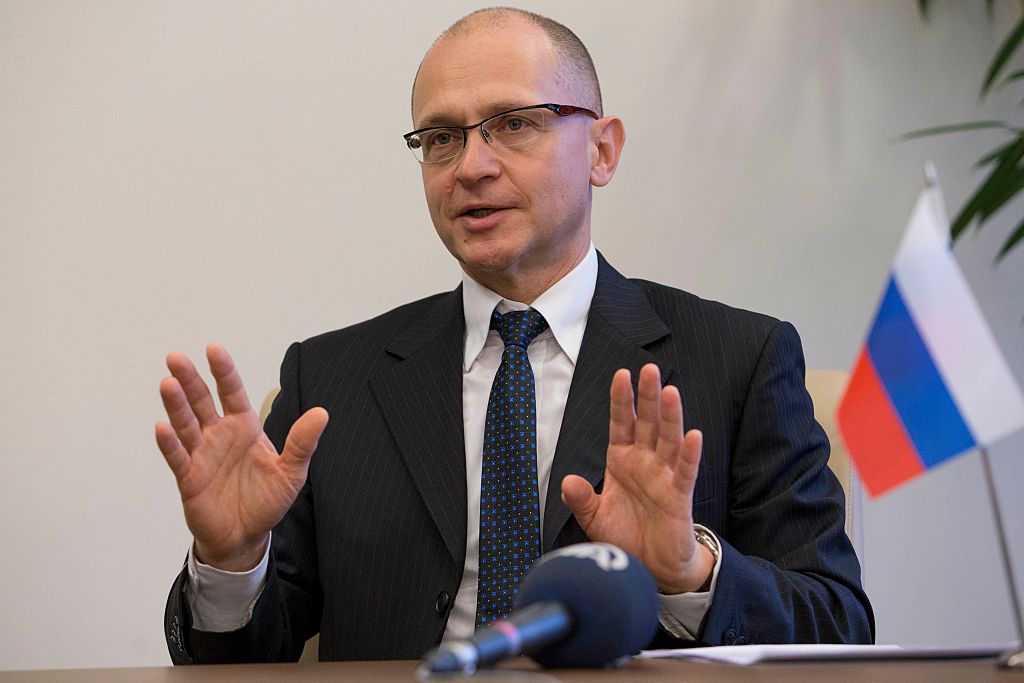
Gigantic Excel files, some of which have dozens of hidden sheets, minutes of work meetings, as well as presentations and reports created in the Kremlin’s Kiriyenko-led domestic policy bloc are among the documents that were leaked to Delfi. This year’s budget of the Russian Federation is also detailed in these documents. In it, both the financial figures and the responsible persons are determined according to specific projects. In the case of several projects, people who decide on the funding are also named. In some cases, that person is Russian Prime Minister Mikhail Mishustin, or Putin himself.
For example, one document concerns one of the most famous propagandists, Vladimir Solovyov. According to the leak, Solovyov received 1.5 billion rubles from the Russian state budget in 2023, or roughly 15 million euros ($16.2 million) as is also evident from Russia’s public budget. For this year, however, the same document provided Solovyov with twice as much, 30 million euros ($32.5 million). But there is also a note to this: “We are waiting for a meeting between Solovyov and the president.”
We don’t know how the meeting went but, according to Russia’s public budget for 2024, Solovyov’s company still received 15 million euros ($16.2 million). Neither Solovyov nor the Kremlin responded to our comment requests.
Maria Lvova-Belova, the Commissioner for Children’s Rights in the Office of the President, who has been declared a wanted person by the International Criminal Court and sanctioned by the EU for the deportation of Ukrainian children to Russia, will receive 420,000 euros (~$455,00) this year, according to our files. In the comments column, it is said that the money will be given specifically “for the removal of children from the Special Military Occupation Zone.”
Lvova-Belova did not reply to our request for comment.
In these documents, the domestic policy bloc’s budget is divided into three chapters: presidential elections, informational-ideological war, and “new regions” – the Kremlin’s label for the partly occupied Donetsk, Luhansk, Kherson, and Zaporizhzhia regions of Ukraine.
If we take into account the amounts originally planned for this year plus the “additional needs” that the budget files were amended with, the total budget for projects related to these three categories reaches nearly 110 billion rubles. When rounded, this makes 1.1 billion euros ($1.2 billion).
The return of propaganda movies and commissars
To promote civil society, the Putin administration has created an extensive network of non-profit organizations – ANO in Russian, or автономная некоммерческая организация (autonomous non-profit organization). These are organizations whose activities are fully controlled by the Kremlin and into which hundreds of millions of euros are injected every year to carry out state propaganda and ensure the right mindset of society.
According to a memo prepared by Kiriyenko’s team in October 2023, 15 such organizations with a total of 4,357 employees and a total budget of 59 billion rubles, or nearly 600 million euros ($651 million), act as tools of the Kremlin.
The ANO with the largest budget is the Internet Development Institute, or IRI (Институт развития интернета), which commissions and produces patriotic mobile games, TV series, and movies for the presidential administration. Last year, IRI received nearly 22 billion rubles (ie., 220 euros million or $238 million) from the state budget. This year, in connection with the presidential elections, it was initially allocated 11 billion rubles. However, according to the documents at our disposal, the amount was eventually raised to 18 billion rubles (180 million euros or $195.3 million).
According to the documents, the IRI’s tasks are to “reinforce civic identity and spiritual and moral values” and to “support and disseminate governmental content along new thematic lines.”
One of the presentations in our possession is titled “creative content for elections." Its title page features the coat of arms of the Russian Federation, and its authors are IRI General Director Alexei Goreslavsky and Sergei Novikov, the head of the Government of Social Projects of the Kremlin’s domestic political bloc. They presented which films, theater performances and other projects will create a suitable emotional background for the presidential election.
According to the presentation, every film that premieres before the election must evoke one of four sentiments in the audience:
- Defense of national interests, including cultural and societal (traditional) values
- Quality changes in Russian life as a permanent trend
- Heroes of our days, reasons for pride, and the big names of Russia
- We are together – projects aimed at the residents of new territories, the theme of the special military operation
IRI did not respond to our request for comment.
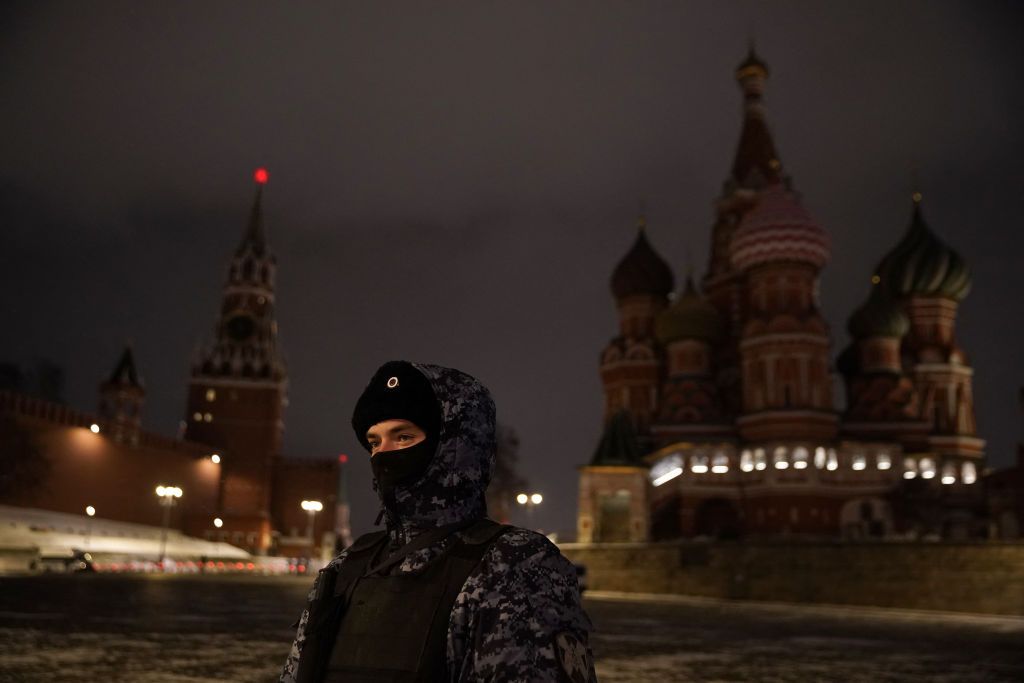
At least two films have been scheduled to premiere every month since last October. In the first months, most of them reflected national interests and cultural and traditional values, then in February and March, films will be premiered that echo Russia’s new heroes and big names.
For example, during the elections, the film “Callsign: Passenger” (originally planned with the title “Militaman,” “Ополченец”) will premiere. According to the synopsis of the movie, a young artist named Ryabinin “leaves behind his peaceful life and volunteers for the civil war (war against Ukraine), to record the tragic events of Russian history (…). The suffering of people and the heroism of his comrades completely change the young man’s self-awareness,” reads the description.
Just now, a 12-part series “GDR” (German Democratic Republic) has been launched on Russian streaming site Wink. According to the synopsis, a Soviet spy finds himself at the center of the intrigues of the world’s leading intelligence services and who holds the fate of East Germany in his hands. The protagonist seems to have been based on Vladimir Putin. “The image of a hero paints a positive picture of a national security officer. The spy drama speaks of the paramount importance of national sovereignty as the basis for the development of a country,” one of the leaked documents describes the series.
Our investigative partner Meduza interviewed people closely involved in the projects that made it onto the IRI release calendar. They claimed to know nothing about how these productions must follow one of the four prescribed topics and evoke certain sentiments.
In addition to the films, Goreslavski and Novikov also presented other projects that should create similar feelings in Russian society. Several films, series and other projects directly aim to shame and humiliate Ukraine and the West, and to portray, for example, Ukrainian President Volodymyr Zelensky as a puppet of the “Anglo-Americans.”
At the same time, the presentation points out that the “key risk” of such large-scale art projects is that their “intended meaning may be inconsistent.”
To reduce such risks, according to the presentation, a separate 15-member editorial department was already created at the end of 2022 to “oversee all production stages from script preparation to the publication of finished content.”
Martin Kragh, deputy director of the Center for East European Studies in Stockholm, compared this kind of “editorial staff” to the Soviet-era politruks or commissars, whose task was to ensure that every institution and work collective followed the party line. “Everything we see in these documents is completely Soviet,” Kragh said.
Each film, TV series, school competitions, and all other projects are also provided with specific numbers, such as how many viewers or participants they must reach. To accomplish this, IRI bosses want the president’s administration to force Russian social media and internet platforms such as VKontakte and Yandex to advertise them for free and to inject them into people’s social media feeds.
While IRI, or the Internet Development Institute, is responsible for ordering and producing “creative content” with the Kremlin’s desired ideology, a similar Kremlin proxy, ANO Dialog and its affiliate Dialog Regions, must ensure that this content reaches the required number of viewers across Russia.
ANO Dialog is one of the most influential national NGOs, which has rapidly grown in importance in the Kremlin during the war years, and it currently has nearly 2,500 employees. According to documents in our possession, ANO Dialog is being paid close to 68 million euros ($73.7 million) from the state budget to set up new regional and content creation centers in the occupied territories of Ukraine, each employing dozens of people. The purpose of such centers is, among other things, “targeted advertising” and “essential analytical products in preparation for the elections.”
Dialog is managed by Vladimir Tabak, one of the most well-known internet technologists in Russia, and his deputy, Andrei Tsepelev. They are responsible for the effectiveness of the Kremlin’s propaganda on the internet. One of Tsepelev’s slides describes how the internet is rapidly taking over the place of television in propaganda work in Russia.
According to this document, 45% of Russian residents find information on the internet: social media and blogs, news and official state channels, and messaging apps. For television, this number is only 42%. At the same time, the internet is by far the most important information channel among Russians up to 44 years old.
In the same presentation, Tsepelev outlines the role and purpose of the internet in Russia’s governmental internet (госдиджитал) over the past eight years. If until 2019 the internet was just an “important tool," then in the next two years, it was a “mandatory part of work.” From 2022, however, Tsepelev identified the internet as the main channel of communication and the objective of the internet is: information war.
He outlined where Dialog comes into play here. The work takes place in a sector where three different activities intersect: political technology, state PR, and social media marketing. However, according to the same presentation, the national PR must accompany every Russian citizen literally throughout their life: from kindergarten and school to museums, libraries, sports activities, including communication with everything that concerns municipalities and the central government, and ending with hospitals. (ANO Dialog also did not respond to our request for comment.)
According to the documents we obtained, the budget of the Putin administration’s projects related to the presidential elections totals 54 billion rubles, plus about 20 billion rubles for “additional needs” in 2023 and 2024 combined. Converted very roundly, this means 740 million euros ($802 million), which will be spent on specific projects.
For example, additional funding of 45 million euros ($48.8 million) is provided for the “Global Youth Festival,” 16.7 million euros ($18.1 million) for the “International Exhibition Russia” and additional millions for the programs of various educational institutions, such as the school of mayors, digital school of municipalities or a children’s patriotic camp in Pskov Oblast. There are dozens more of such projects.
Mark Galeotti said that such schools, competitions, and camps are not financed by the Kremlin only for the purpose of a specific event. “They are for raising and indoctrinating the new elite. Whether we are talking about children’s patriotic camps or courses on how to be a better mayor, their goal is, among other things, to find talent suitable for higher positions. (The Kremlin understands) that Russia is turning into a gerontocracy and they need to build a new elite that is ideologically on the same page as the regime,” Galeotti explained.
The Kremlin’s secret polls
With Putin’s personal approval – “Согласен” – the presidential administration allocated 3.6 million euros ($3.9 million) for conducting exit polls for the presidential elections, and another 5.8 million euros ($6.2 million) was ordered for covering the costs of sociological research and pollings in occupied Ukraine.
In addition to these two “additional costs,” there is a total of nearly 28 million euros ($30.3 million) allocated to sociological studies in connection to the presidential elections.
According to a source who has seen such studies themselves due to the nature of their work, but who was not authorized to comment on record, these are very likely secret sociological research, which the Kremlin has been commissioning for decades. “They are testing the ‘temperature’ of society in order to be able to respond adequately. If minor things strongly disturb society, they won’t start to pursue them,” the source said.
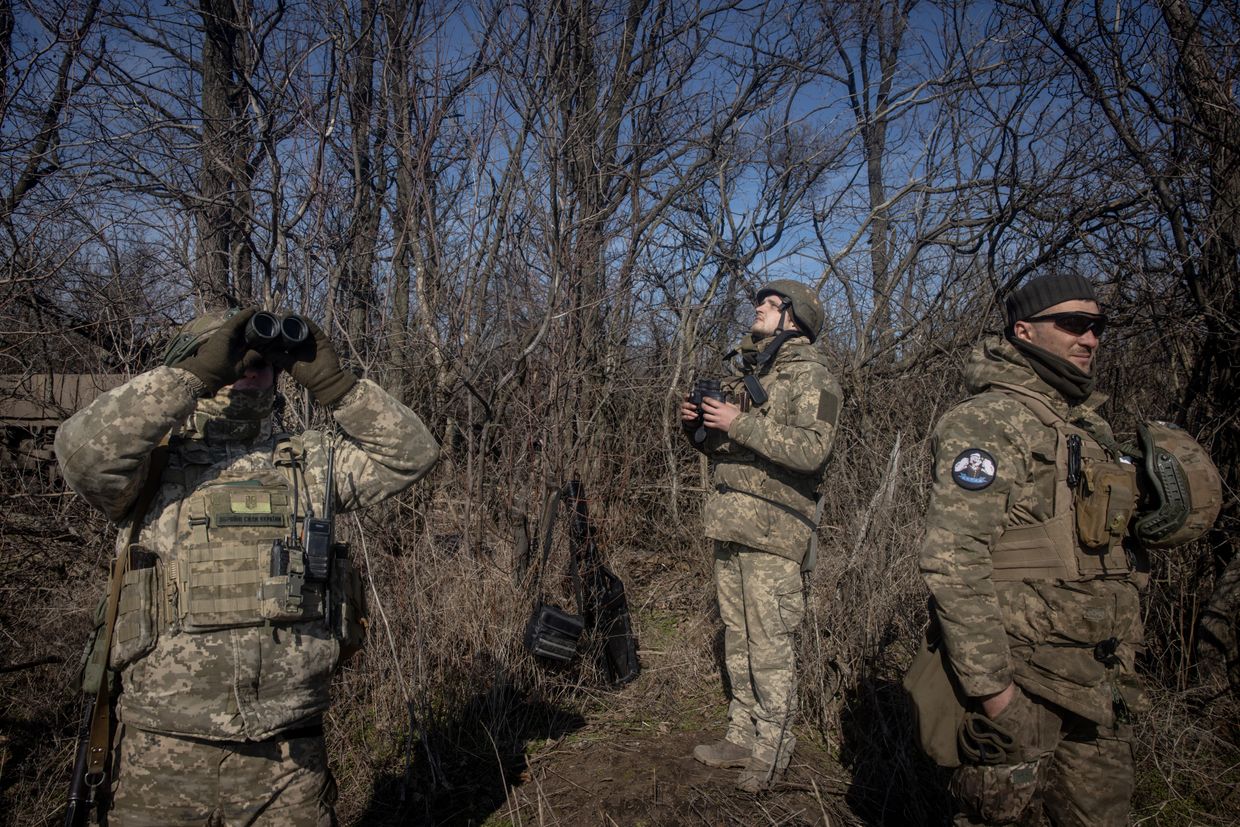
According to the knowledge of this expert, secret studies ordered by the Kremlin are often more accurate and go more in-depth than public studies. “In undemocratic societies, people don’t dare to tell sociologists what they really think,” the source said, citing as an example that Russia has an exceptionally high percentage of people who refuse to answer pollsters’ questions, reaching even more than 90% in the case of telephone interviews.
“The population does not trust that these are truly anonymous surveys. Therefore, people do not answer honestly. They are afraid. Even in the case of the Kremlin’s polls for internal use, they don’t answer honestly until the end, but there the surveyors make more effort with control questions. They weed out those parts of the respondents whose answers to the control questions contradict their answers to the real questions,” the source explained.
The fact that the Putin administration ordered these polls shows that the Kremlin is interested in the actual result of the elections, the source added: “They want to check how much the regions can tamper with the actual election results and how much they manipulate them to present Moscow with the numbers they think it would like to see. The Kremlin needs to know as precisely as possible what the real results are in order to, among other things, see how much it is worth fabricating.”
A secret way to monitor teachers and pre-election rigging
The Kremlin leaves nothing to chance, and this is confirmed by ANO Integration’s leaked action plan. One of their presentations directly quotes a presidential order from Vladimir Putin. This order was issued by Putin in the secret decree number 106 on Feb. 17, 2023, titled: “On deputy heads responsible for social and political work of federal government agencies.”
“Objective: To ensure the coordination of the Ministry of Education and Science with other federal agencies in order to increase the number of voters and the support of the main candidates both in the upcoming presidential and other elections,” the presentation states. To make things clear, the back half of the objective – increasing voter turnout and support for main candidates – has been highlighted in red.
First, the ministry creates a list of all employees, then a second list of opinion leaders from within institutions overseen by the ministry. After that, the task is “increasing [their] level of socio-political literacy” and monitoring their political attitudes and voting preferences. (Integration left our request for comment unanswered.)
Martin Kragh points out this as another example of how the Kremlin is using methods familiar from the Soviet Union: “All these documents show how little the Kremlin believes that people might just spontaneously support the ruling party.”
As separate “formats of informational work,” these documents envisage, among other things, the organization of contests “to stimulate the participation of students and teachers in the elections,” the preparation of secret materials and instructions (another Soviet-era term, “темники”) concerning the importance of participation in the elections and the ways to realize it, and an “Open dialogue” club, during which opinion leaders and other invited “experts” can meet with students and teachers.
Galeotti called this “pre-rigging” of the election, the purpose of which is to ensure that, on election day, the actual number of ballots cast in support of Putin would only need to be manipulated as little as possible. In the process, the Kremlin monitors the Russian population which they know would lie to the state at every turn. “The Kremlin cannot even trust what mayors and governors tell them about the (political) situation in their region,” he said. According to Galeotti, this has made the Kremlin extremely risk-averse, so they need to control everything.
In an earlier presentation from August 2022, ANO Integration’s director-general Gleb Shagun explained in detail how “opinion leaders” are created, trained, and supported – from identifying regional opinion leaders to helping them create and amplify propaganda content in the media, and teaching them how to boost their own image.
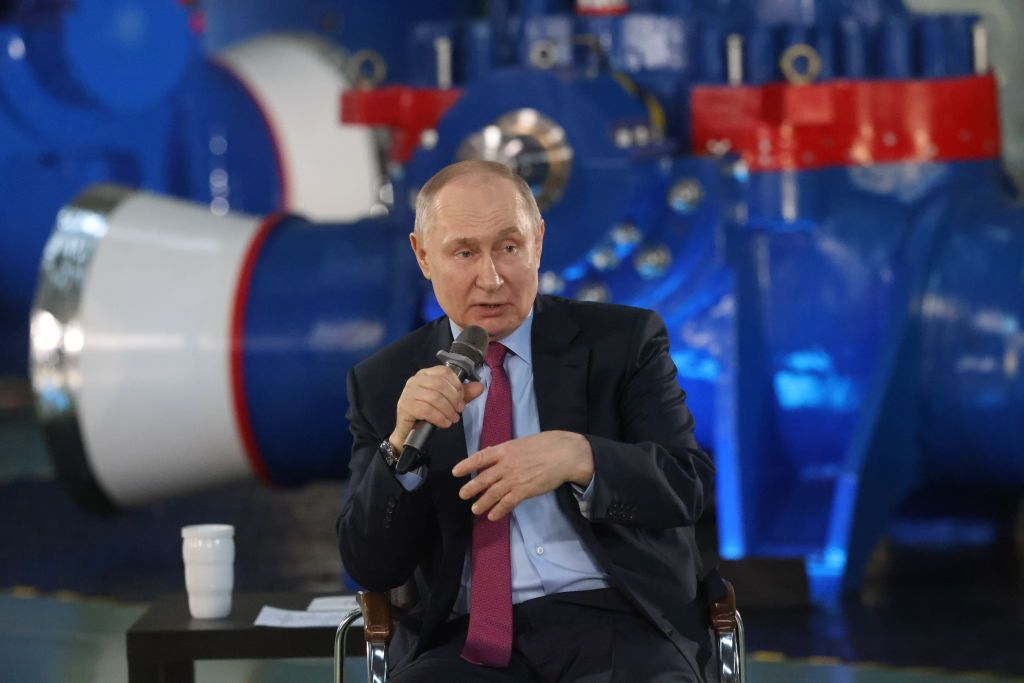
In doing so, the plan envisages monitoring the activity of opinion leaders, creating emotionally more engaging ways of communication, as well as cooperation with “leading media publications,” universities, donors, and government agencies.
“All this follows a broader trend in which Russia is becoming a totalitarian society. It is no longer an authoritarian, fake democracy,” Martin Kragh said of the documents.
“The difference between an authoritarian and a totalitarian system is that totalitarianism demands public loyalty from you. It is no longer enough for you to simply be silent and not resist. (Now) it is also necessary to actually participate in political organizations,” he added.
Examples of seminars conducted for opinion leaders include “immersion in the specifics of Donbass”. The instructors or trainers of these seminars include Kristina Potupchik, a well-known propagandist in Russia; Maria Butina, who was arrested by the FBI in the U.S. due to illegal influence activities; and Aleksandr Malkevich, a propagandist also sanctioned in the West.
(Editor's note: "Donbass" is the Russian spelling of the Ukrainian Donbas region)
At the same time, examples of what content has already been created for opinion leaders are also provided in several slides. For example, director Valery Timoshenko produced six mini-films, which attracted more than 600,000 viewers in total. Their titles include: “Children died,” “Rocket strike,” “This is wrong,” “Fight with us,” “Debaltsevo,” (and) “We will not hide behind people.”
Not only Russian opinion leaders and their creations are listed. German documentary maker Wilhelm Domke-Schulz is also mentioned, who produced the films “We will not forget Odessa, we will not forgive,” and “Donbas,” which were shown on Russian state TV. Domke-Schulz’s propaganda films “talked about fascism in Ukraine, the confrontation between Russia and the West, and the new political reality.”
(Editor's note: "Odessa" is the Russian spelling of the Ukrainian city of Odesa)
In a comment to VSquare’s partner Paper Trail Media, Domke-Schulz said that his films were “about the crimes of fascist mass murderers and terrorists in Ukraine.” He said he was aware that one of the movies was shown on Russia’s state TV “Rossiya 24”, but that he was unaware of further screenings on Russian television.
The Russki Mir brigades
The documents leaked to us – as you remember, Sergei Kiriyenko’s nickname today is the “Viceroy of Donbas” – also show in detail how the Kremlin plans to integrate occupied territories in Ukraine with Russia, to ensure the loyalty of the local population and, of course, their support for Putin in the upcoming elections.
One file from December 2023, which deals specifically with funding for “new regions,” indicates the intention to allocate 2.4 million euros ($2.6 million) to the Russian ruling party United Russia with the explanation “supporting regional branches.” The largest part of it, or 730,000 euros ($792,000), is earmarked for Donetsk, 609,000 euros ($660,000) for Kherson Oblast, and 530,000 euros ($575,00) for Luhansk and Zaporizhzhia Oblasts.
Martin Kragh highlighted the paradox of the Kremlin’s plans as illegal activity – giving discriminative state funding only to one political party – is wrapped in some kind of a legal framework. “It is obvious from all these documents what the purpose of their activities is. They need some kind of structure in order to integrate the occupied territories, and the most available structure is United Russia.”
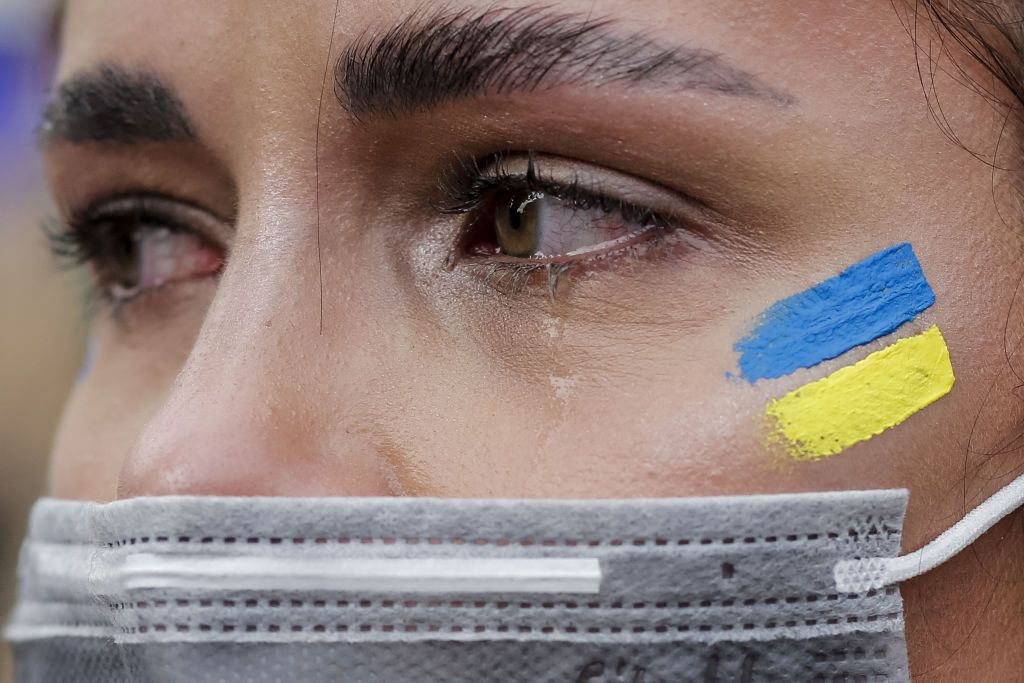
The “list of instructions” from May 2023 also shows how hard the Kremlin is trying to completely shut down the current information channels of the residents of the occupied territories and replace them with the Kremlin’s information flow:
“Task number one: Calculate the actual need to install Russki Mir [satellite dish] sets. Increase the number of installation teams as necessary. Dismantle Ukrainian satellite equipment. Calculate and ensure the allocation of necessary financial resources. Current status: As of May 15, 2023, 6,000 satellite TV sets have been installed for residents of the (Donetsk People’s) Republic.”
The document describes how, at the same time, 63,000 requests for the installation of Russian satellite sets have been received from local residents, and 67 technical brigades are engaged in the installations. “One of the tasks when Russki Mir sets are installed is to take down Ukrainian satellite TV if the customer has one,” the document states.
The next task envisages the development of a “plan to counter the spread of Ukrainian mass media propaganda materials” in the four partially occupied regions. Plans for increasing the circulation of local print media and their free distribution must also be developed and approved, the leaked document writes.
New methods of internet censorship
Russia’s active propaganda war is not limited to spreading its own messages and building a new information space. It also includes blocking and censoring inappropriate and, in the opinion of the Kremlin, hostile content – especially on the internet.
According to the documents we obtained, a special internet blocking system is being financed both in connection with the presidential elections and the control of the information space in the occupied territories. According to its Russian acronym, it’s called ASBI, or the “Automated System of Internet Security” (автоматизированная система безопасности Интернета), which operates under the Main Russian Radio Frequency Center.
Last year, according to one document listing the investments directed at the occupied territories, ASBI was provided with 10 million euros ($10.8 million) for the acquisition of equipment and technical improvements to “resist the spread of prohibited information, block prohibited content in new territories, ensure the functioning of the Russian segment of the Internet, and resist external threats and attacks.” ASBI’s total state funding reached 89.6 million euros ($97.2 million).
Funds were allocated to the so-called national NGO CISM or the Centre for the Study of the Youth Environment and Monitoring of Networks (ЦИСМ – Центр изучения и сетевого мониторинга молодёжной среды) to monitor the sentiments of younger generations in the occupied territories of Ukraine in order to “immediately inform about emerging threats and destructive manifestations.” According to this document, CISM must make sure that at least 85% of the social media profiles of the residents of the occupied territories are monitored.
In an earlier paper, CISM reported that they are building a “multimodal neural network cognitive monitoring system” to detect destructive information and user profiles on social media. Using this technology, they claim that they can monitor more than 52 million social media profiles, of which nearly 1.6 million have already been added to a database of “destructive accounts” for constant monitoring.
The leaks also refer to several other projects the Putin administration plans to create or develop to detect “forbidden content” on social media. Part of the artificial-intelligence-based system will detect prohibited content in images with the capacity of analyzing at least 200,000 images per day. They also set the goal to maintain a level of at least 70 percent of pro-Russian comments in the “ChP Donetsk” Telegram channel.
In order to stop information originating from Ukraine, the same document also refers to the purchase of signal-jamming equipment.
And more: “Under the conditions of information confrontation” and in cooperation with the Federal Center for Youth Content Creation, “commentary work” must be organized according to the talking points prepared by the public information departments of the so-called People’s Republics of Donetsk and Luhansk and the governments of Zaporizhzhia and Kherson.
Another task was to audit outdoor advertising spaces and prepare documents stating that these billboard and public advertisement spaces are ownerless and subject to nationalization. Why? “For the sake of informative coverage of the election campaign.” Aleksey Nikonorov, head of the administration of Denis Pushilin, the leader of the so-called Donetsk People’s Republic, was appointed responsible for the execution of these last two tasks.
Pancakes for soldiers, tulips for women
The Kremlin also pours loads of money into the occupied territories for offline propaganda activities. For example, as of 2023, there are plans to organize “cultural and educational events” for three consecutive years, with a budget of 300 million rubles, or about 3 million euros ($3.2 million). Actually, this consists of celebrating various patriotic days throughout the year, such as Defender of the Fatherland Day, National Unity Day, or Heroes of the Fatherland Day. On these days, enormous Russian and Soviet flags fly, school children sing patriotic songs, soldiers hand out flowers to women, and grandmothers make them pancakes in return.
The documents also detailed plans to allocate 13 million euros ($14.1 million) over the next three years to Readovka, a media firm that has grown rapidly in Russia during the war years. Half of this fund will go directly to launch a new media network in the occupied territories of Ukraine.
The editor-in-chief of Readovka, Alexey Kostylev, replied to our requests for comment with a joke, saying that it is actually Readovka that finances Russia’s federal budget and not the other way round.
The document lists in detail which social media channels and websites Readovka plans to open – there are 20 in total – and how exactly the budget for each of them will be divided. To date, all but one of the planned channels have been launched.
Most of the “journalists” and “editors” will be driven there straight from Moscow, according to the plan. A salary of 1,500 euros ($1,627) is set for the editor-in-chief, a regular journalist’s salary is between 400 euros ($434) and 800 euros ($868), and a war correspondent earns 1,200 euros ($1,302) a month (it is not specified in the documents whether these are gross or net salaries).
“This corresponds to the average salary in the region, taking into account a price premium for the difficult working conditions and the risk of the work,” the document states.
Mark Galeotti said that, in a perverse way, he was even pleased to learn from the Kremlin documents we showed him how much money the Kremlin is spending on supporting its Soviet-style ideology.
“But we really have to remember that the Soviet Union had much greater control of the information space than today’s Russian government, and ultimately it failed,” Galeotti said. “With this money, the Kremlin cannot buy long-term control over people’s thoughts.”











